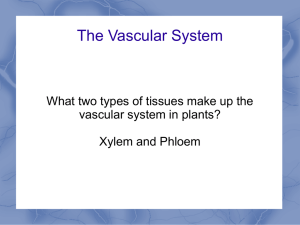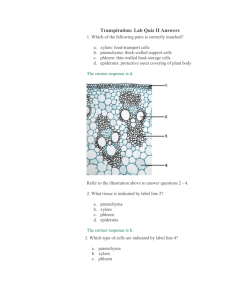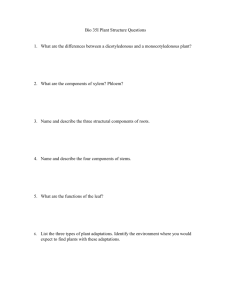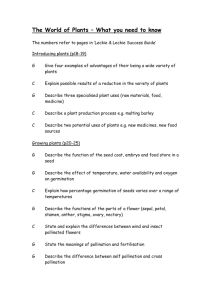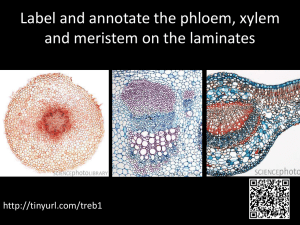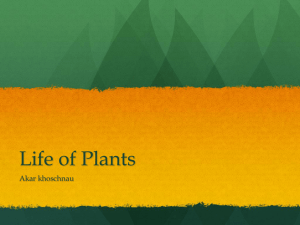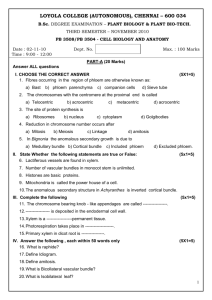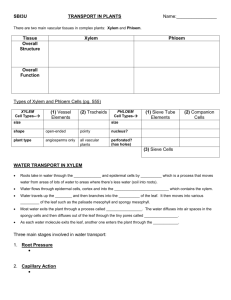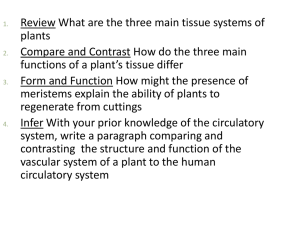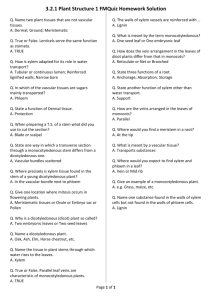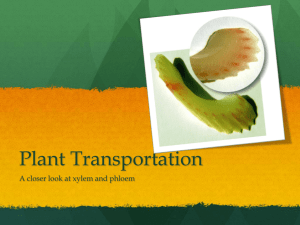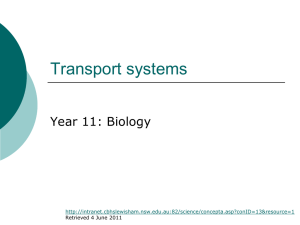Slide 1
advertisement
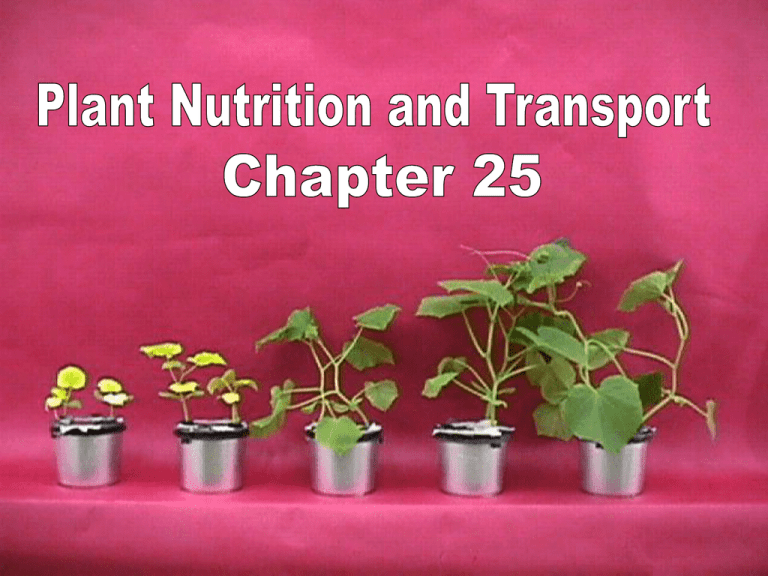
Which of the following are long, thin cells that overlap, are tapered end to end, and carry water? a. parenchyma b. sieve tube members c. tracheids d. companion cells e. phloem Answer: c Which of the following results from the direct expenditure of energy in a plant? a. root pressure b. evaporation of water from the leaves c. water flowing into the root apoplast d. transpirational flow e. sap flowing down from the leaves to the roots Answer: e The rate of flow of water through the xylem is regulated by a. passive transport in the pith. b. the force of transpirational pull. c. active transport by the sieve-tube members. d. the number of companion cells in the phloem. e. active transport by tracheid and vessel cells. Answer: b The driving force for the movement of materials in the phloem of plants is a. gravity. b. a difference in osmotic pressure between the source and sink. c. root pressure. d. transpiration of water through the stomata. e. adhesion of water to vessel elements. Answer: b Which of the following has the lowest water potential? a. root xylem b. stem xylem c. soil d. air spaces in the leaf e. root hairs Answer: d s p s p Bulk flow: Movement due to pressure (tension) Which of the following are long, thin cells that overlap, are tapered end to end, and carry water? a. parenchyma b. sieve tube members c. tracheids d. companion cells e. phloem Answer: c Which of the following results from the direct expenditure of energy in a plant? a. root pressure b. evaporation of water from the leaves c. water flowing into the root apoplast d. transpirational flow e. sap flowing down from the leaves to the roots Answer: e The rate of flow of water through the xylem is regulated by a. passive transport in the pith. b. the force of transpirational pull. c. active transport by the sieve-tube members. d. the number of companion cells in the phloem. e. active transport by tracheid and vessel cells. Answer: b The driving force for the movement of materials in the phloem of plants is a. gravity. b. a difference in osmotic pressure between the source and sink. c. root pressure. d. transpiration of water through the stomata. e. adhesion of water to vessel elements. Answer: b Which of the following has the lowest water potential? a. root xylem b. stem xylem c. soil d. air spaces in the leaf e. root hairs Answer: d
